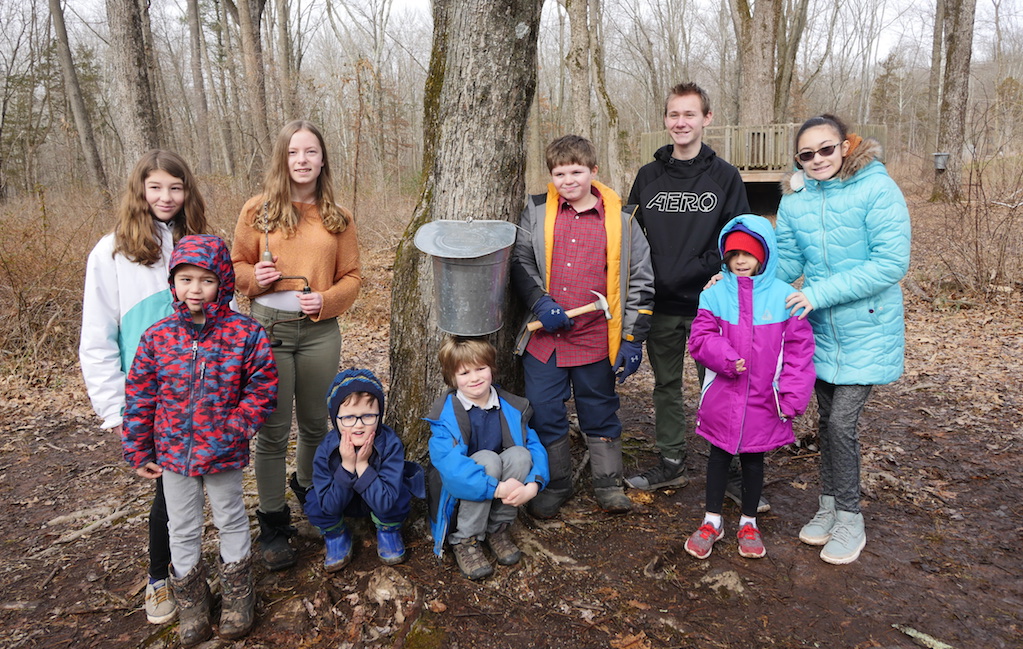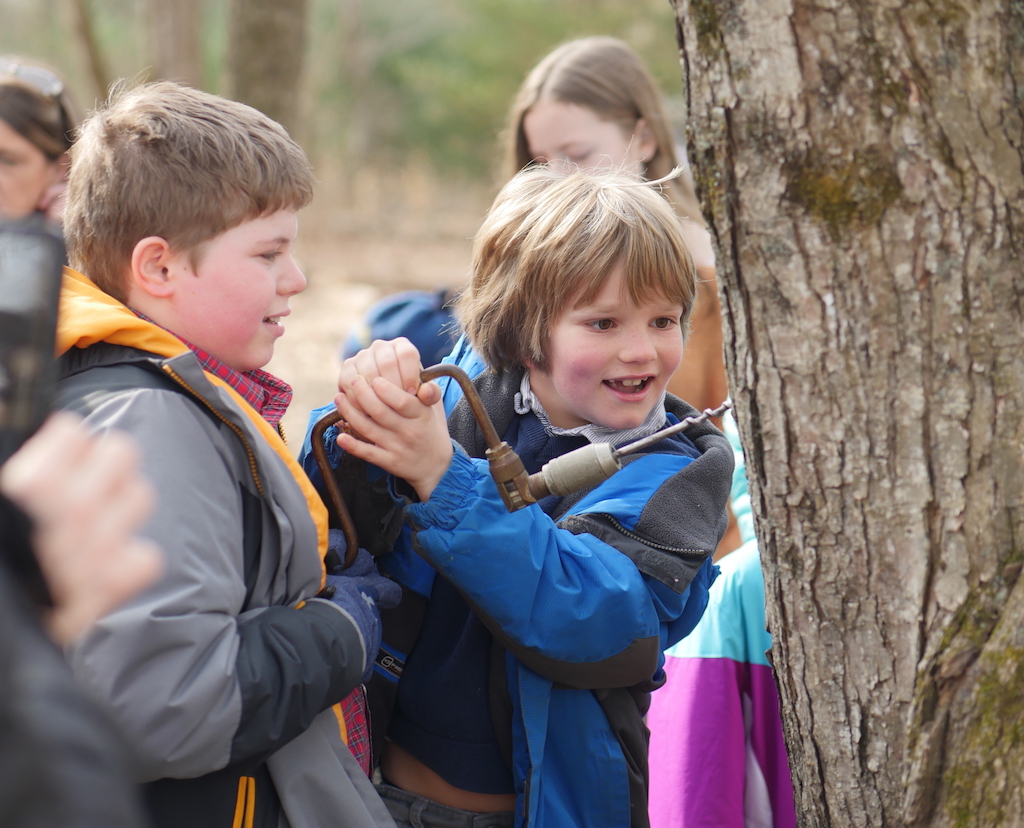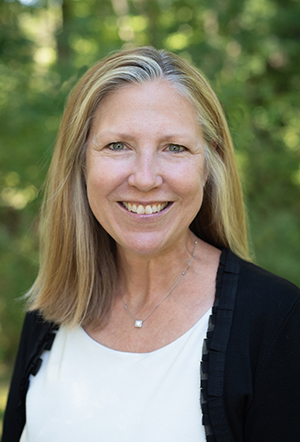What makes a learning experience memorable? It’s hands-on. It’s more of an experience than a lesson. It connects the dots between different things you know. It’s relevant to your life, so what you’ve just learned is immediately (and often) applied. Willow’s annual, multi-grade, interdisciplinary maple syrup-making project is exactly that kind of experience!
Students in kindergarten, second grade, and seventh grade work together to tap maple trees in Willow’s woods, collect the sap, and boil the sap into syrup. This project is a great example of what educators call “place-based learning,” a way of teaching that takes students out of the classroom and uses their surroundings to make what they learn more tangible and relevant. Maple sugaring is also a STEAM project, integrating science, technology, engineering, art, and math. Students use their scientific knowledge of trees, mathematical ratios involved in the boiling process, legends and culture of the Lenape, and understanding of various technologies employed. They creatively express their understanding of the process through acting, art, and song. It’s a joyful, tasty, and incredibly memorable learning experience!
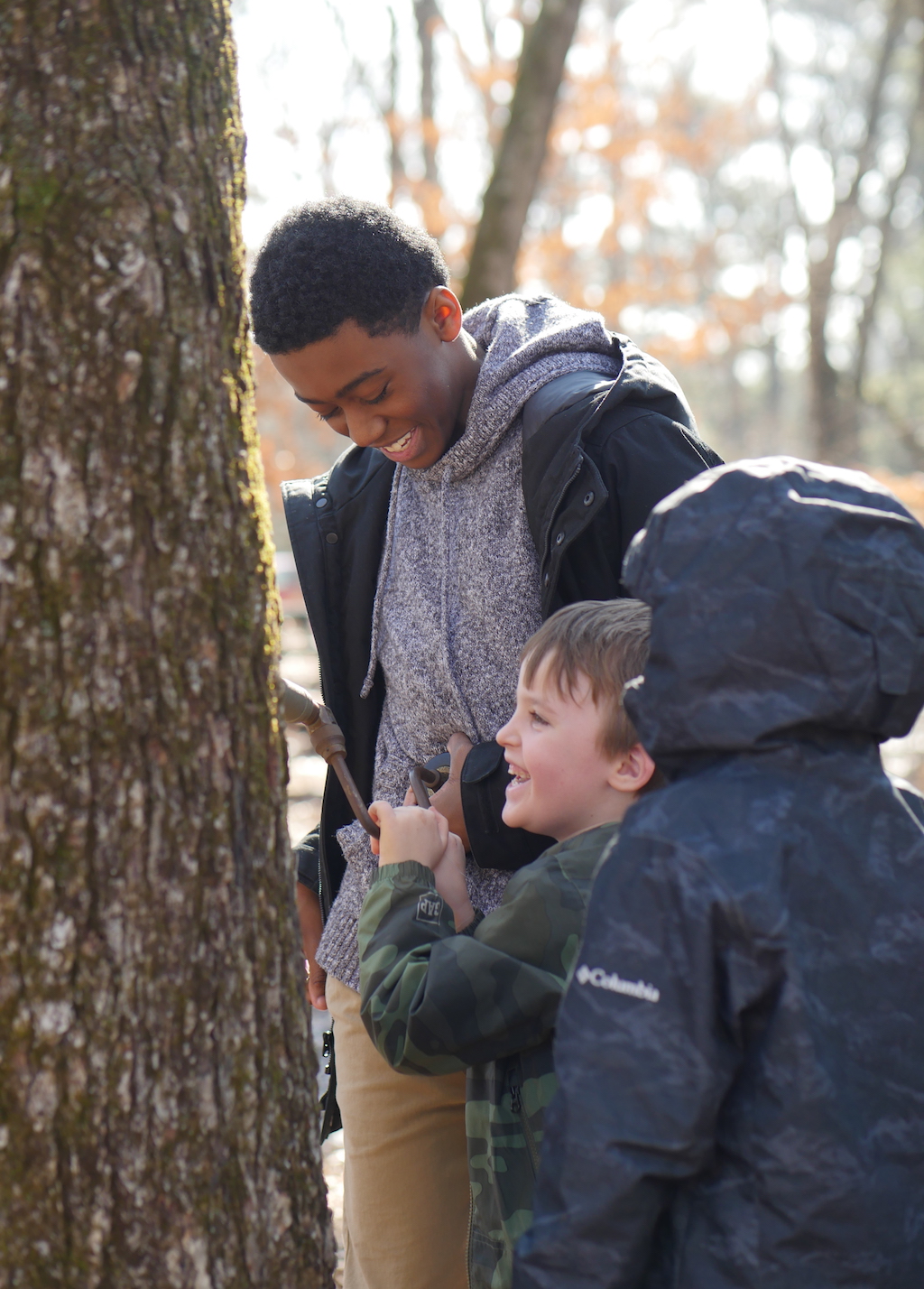
Seventh graders love teaming up with kindergarteners!
Maple Sugaring at Willow: Who Does What?
In the fall, each kindergartener adopts and studies a tree in the school’s west woods, an area that can be seen from the classroom windows in the school’s playground. In science, students learn about a tree’s needs and why trees are important to all living things. Students draw pictures of their special trees, create a three-dimensional tree, and sing songs or write stories about their trees. As kindergarteners boil the sap in the classroom, they also learn about evaporation, a great hands-on introduction to the water cycle.
In second grade, students explore maple sugaring history and culture from the perspective of the Lenape. Before tapping the trees, students from the three grades split into Lenape tribes and make their own medicine wheels based on the virtues important to them. Once the sap is collected, second graders also use the graphing skills they’ve learned in math to measure the amount of sap the trees produce. After boiling the sap to create syrup, students make a final measurement, and the amounts are compared to each other. This project is also a seamless introduction to the changing states of matter and the water cycle that second graders study in science.
Seventh graders work on a year-long phenology project in their science classes, studying the changes of multiple plants on campus, including our maple trees. They also learn about the relationships between sap production, tree size, and weather. Students use that knowledge (and their math skills) to predict how many gallons of sap will be produced and how many gallons will be necessary to produce syrup. Seventh graders take on a leadership role throughout the project, teaching their kindergarten and second grade buddies about the maple sugaring process through games they invent and helping the younger students collect the sap, record volumes, and perform the final calculations.
An Experience All Students Enjoy
Come recess time, students in all grades dash out to the trees to check the buckets for sap. Since the trees are in the playground area, all Willow students participate in the excitement. The process also encourages students to pay attention to the weather. Freezing nights, along with above-freezing days, cause sap to flow. Seeing the sap flow makes science come alive and further develops a sense of respect and love for the trees. Finally, the entire school gathers for a special Maple Festival celebration, where everyone can enjoy the maple syrup these students made!
Maple sugaring inspires a sense of wonder for all ages. There is nothing better than seeing the excitement of a kindergartner who has just discovered sap flowing for the first time, or watching a seventh grader take younger students under his or her wing as they team up to tap trees. The maple sugaring project is a great example of how Willow students gain a deep understanding of multiple topics through integrated, place-based learning, while developing leadership skills and keeping their love of learning alive! It’s an experience they’ll never forget!
You’re invited to our 2019 Maple Festival on Monday, March 4! Click here to RSVP.
